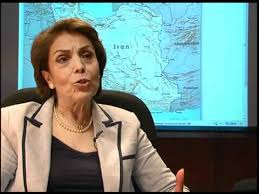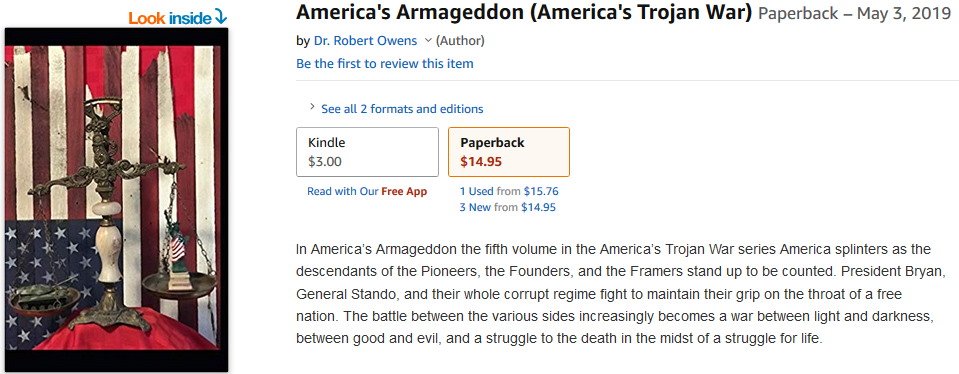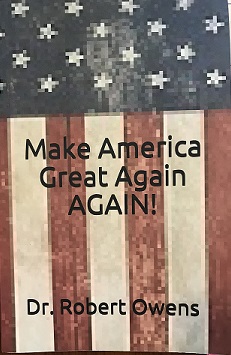States Must Stop Using Terrorists as Political Instruments
- Written by Mohsen Farahbar

Iran Review’s Exclusive Interview with Shireen T. Hunter
The Islamic State of Iraq and Syria (ISIS) terrorist group, which consists of Baathist and Takfiri forces, has conquered many cities, towns and villages as well as large swaths of land in the northern provinces of Iraq. The current situation in Iraq, which is a direct result of the invasion of the country by the terrorist forces of the Islamic State of Iraq and Syria (ISIS) is to a large extent the outcome of secessionist viewpoint that dominates the mindset of Iraqi people. Ethnic and religious differences and rivalries arising from those differences constitute an undeniable reality in Iraq. The foreign element, however, has played a fundamental role in inciting and exacerbating these rivalries. At the present time, the blazing flames of the conflagration, which will leave nobody unharmed, have greatly raised the possibility of the disintegration of the country.
To discuss United States inaction over the crisis in Syria and Iraq, Saudi Arabia’s approach to these regional crises, Iran's strategic capabilities in the region, and future course of developments in Iraq and the region, Iran Review.Org conducted an exclusive interview with Dr. Shireen Hunter.
Shireen T. Hunter is a visiting scholar at the Prince Alwaleed Bin Talal Center for Muslim-Christian Understanding at Georgetown University and a distinguished scholar at the Center for Strategic and International Studies, where she directed the Islam Program from 1998 to 2005. She also served as director of the Mediterranean Studies Program at the Centre for European Policy Studies in Brussels (1994–98), deputy director of the Middle East Program at CSIS (1983–93), guest scholar at the Brookings Institution, and research fellow at the Harvard Center for International Affairs. She is an expert in Iran politics. Her recent book is “Iran Divided: The Historic Roots of Iranian Debates on Identity, Culture, and Governance in the Twenty-First Century” (Rowman & Littlefield Press, 2014). What follows is the text of the interview:
Q: Ms. Hunter, do you agree with this viewpoint that the main reason behind the United States inaction over the crisis in Syria and Iraq is Washington’s plan to create a new balance of powers among three regional fronts, which include a) Iran and the resistance movement, b) Turkey and the Muslim Brotherhood, and c) Saudi Arabia and other players in proxy war, such as Qatar, by pitting them against one another in Syria and Iraq? What effects do you think these crises will have on the power of various regional players?
A: The main reason behind America’s cautious policy towards the Syrian and Iraqi crisis is the desire of president Obama to avoid becoming involved in another military operation. But because of certain pressures on the U.S. to act in Syria, the American administration has chosen a middle road, namely to support the moderate opposition to the Assad regime. In Iraq, US is trying to solve the crisis politically and by encouraging the formation of a more inclusive government. Also, America does not want to be seen as taking sides in Iraq’s sectarian disputes. As to the policies of regional countries, the determining factors have been their own security concerns as well as power ambitions. For instance, Turkey’s policies have been determined by Prime Minister Erdogan’s neo-Ottomanist dreams and his view of himself as the Khalif of Muslims. Saudi Arabia has acted against Bashar al Assad because of its anger at Syria for not abandoning its ties with Iran and following the Saudi leadership in the region, plus its desire to break the ties between Iran on the one hand and Syria and Hezbollah on the other.
Q: You are certainly aware that Saudi Arabia has been a major reason for the existing critical conditions in Syria and Iraq. In doing this, Riyadh has dealt heavy blows to efforts made to manage these crises by promoting its own ideology and also by offering financial and logistic support to militants. It is clear that Saudi Arabia’s approach to these two crises has been rooted in regional conflicts and rivalries that existed between Riyadh and Tehran. Why the United States has raised no objection to the irrational and costly policy adopted by Riyadh in the region and for what reason the US policy toward Saudi Arabia has mostly remained stable and unchanged?
A: The main reasons why so far the US has not tried to prevent Saudi Arabia’s ideological and other activities in the Middle East and in South Asia are the following: a) the perception that Saudi Islam is less threatening to American interests and those of its allies than the revolutionary Islam of the Islamic Republic of Iran; b) the fact that Saudi Arabia does not challenge America’s basic policies, it does not attack Israel, it keeps the oil prices at a moderate level and considers itself a US friend; and c) America’s troubled relations with Iran.
Q: One of the goals pursued by those opposing the central government in Iraq is to undermine Iran's strategic capabilities in the region. To what extent, do you think, West’s policy for isolation and containment of Iran in the region during the post-revolution era has been rational and successful? How this Western policy has served to take the region away from peace and regional cooperation that is so badly needed by regional countries?
A: In view of its troubled relations with Iran, quite naturally the US would not like to see Iran acquire a dominant influence in Iraq or anywhere else in the region. This is the logic of international politics. But regarding America’s policy towards Iran, several episodes should be identified. During the first decade of the revolution, in view of the new government’s declared animosity towards America, its desire to export its revolution, and its so-called anti-imperialist posture, the US had no choice but to contain Iran. However, during the 1990s and 2000s, coinciding with the presidencies of Hashemi Rafsanjani and Mohammad Khatami, a more nuanced and less hostile policy might have proven better and perhaps might have led to better US-Iran relations. Clearly, US-Iran tensions have adversely affected prospects for regional cooperation. However, no power should be expected to support a regional system designed to counter its influence. The US and also Europe feel that Iran wants to create an anti-Western and anti-Israel front in the Middle East and, therefore, they have been trying to prevent Iran from achieving these goals. What this means is that better US-Iran relations would help the cause of peace and cooperation in the region. For this to happen, however, both Iran and the US should revise some aspects of their past policies.
Q: Do you think that the Islamic State of Iraq and Syria (ISIS) is a temporary phenomenon in the course of developments in Iraq and the region, or are there fertile grounds to turn it into a permanent and long-term phenomenon in the northern parts of Iraq and Syria?
A: The politicization of Islam in the last four decades and the use of an ideologized religion as an instrument of state policy have added to the security problems of regional countries, and today this phenomenon is even threatening the structure of the state system in the region. The destructive impact of politicized religion was first demonstrated in Afghanistan where the Taliban began to form a so-called Emirate as a prelude to a global Islamic Khilafat. ISIS and other recently-formed Sunni radicals are new versions of the same phenomenon. However, the main impetus behind these movements is politics and the urge for power by both the radicals and their supporters. The emergence of these groups, with their transnational aspirations and theories, as well their sectarian character, would have extremely negative effects on regional security because it could lead to more intra and inter-state conflicts.
Q: Although presence of foreign forces in the region was aimed at fighting terrorism, in practice, we have been witnessing gradual rise and spread of extremism in the region since 2003. On the other hand, as the date for withdrawal of foreign forces draws near and as a result of the weakness of central governments, we see that extremist militants are getting more and more powerful. What is your take on this situation? More clearly, what solutions actually exist at domestic, regional and international levels for the resolution of the ongoing crisis in Iraq?
A: The experience of the last two decades has shown that problems of terrorism cannot be solved through the use of force alone. On the contrary, the use of force, by shattering the existing order, leads to more violence, as various groups begin to compete for power and deciding the character of the successor order. Moreover, the shattering of an order affects the balance of power among various states and leads to more inter-state competition. This is what happened in Iraq, where the fall of Saddam Hussein exacerbated regional competition for influence in the new Iraq. Therefore, to end terror, its political, economic, and social roots should be addressed. Lastly, states should refrain from using terrorists as an instrument of their policies, as has been done in Afghanistan, Iraq, and Syria. To solve the current problems, a new regional and international consensus is required about the main issues facing the region and the commitment by all to try to solve problems through peaceful means and to avoid confrontational and maximalist policies.
Key words: The Islamic State of Iraq and Syria (ISIS), Syria and Iraq, Saudi Arabia, Iran, US, Isolation and Containment, Spread of Extremism, Foreign Forces, Terrorism, Hunter
More By Shireen T. Hunter:
*Containing Iran Helps Putin’s Russia: http://www.iranreview.org/content/Documents/Containing-Iran-Helps-Putin-s-Russia.htm
*Ideas and Movements behind the Arab Spring: http://www.iranreview.org/content/Documents/Ideas-and-Movements-behind-the-Arab-Spring.htm
*Politics Fuels A Rising Sectarian Fire: http://www.iranreview.org/content/Documents/Politics-Fuels-A-Rising-Sectarian-Fire.htm
Source
Republished with permission from Iran review



